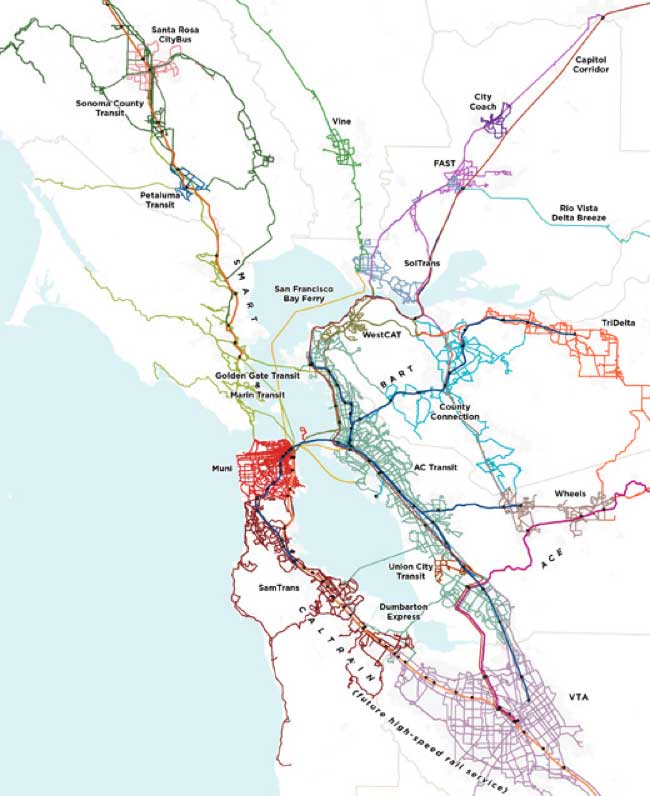Transit riders across the country received a big boost in commuter benefits thanks to Congress’ new spending bill. The bill increased pre-tax transit benefits to $255 per month, matching the pre-tax benefits for parking.
Transit commuter benefits are widely used in the Bay Area: employers with 50 or more full-time employees are required to offer commuter benefits to comply with air quality regulations. Benefits are distributed via Commuter Checks or Clipper Direct, and may be used for transit fares and passes across the region. Previously, transit riders could only receive $130 in pre-tax benefits compared to $255 per month in pre-tax parking benefits, a disparity which provided another incentive for driving.
The increase in transit benefits is particularly noteworthy in the Bay Area considering commuters typically pay higher fares across more agencies. The Bay Area has a fragmented system of over two dozen transit agencies, and many agencies charge distance-based fares that make regional travel very expensive. For example, a commuter traveling from the Peninsula/South Bay to San Francisco incurs $200-$300 in transit expenses per month (via Caltrain and Muni), while a commuter traveling from El Cerrito to San Francisco costs about $200 in expenses per month via BART. For longer commutes across multiple agencies, $400-$500 per month in transit expenses is possible. Therefore, the increase in pretax benefits provides savings for transit riders and incentivizes more people to ride transit.

The Bay Area’s fragmented transit network (Source: SPUR)


